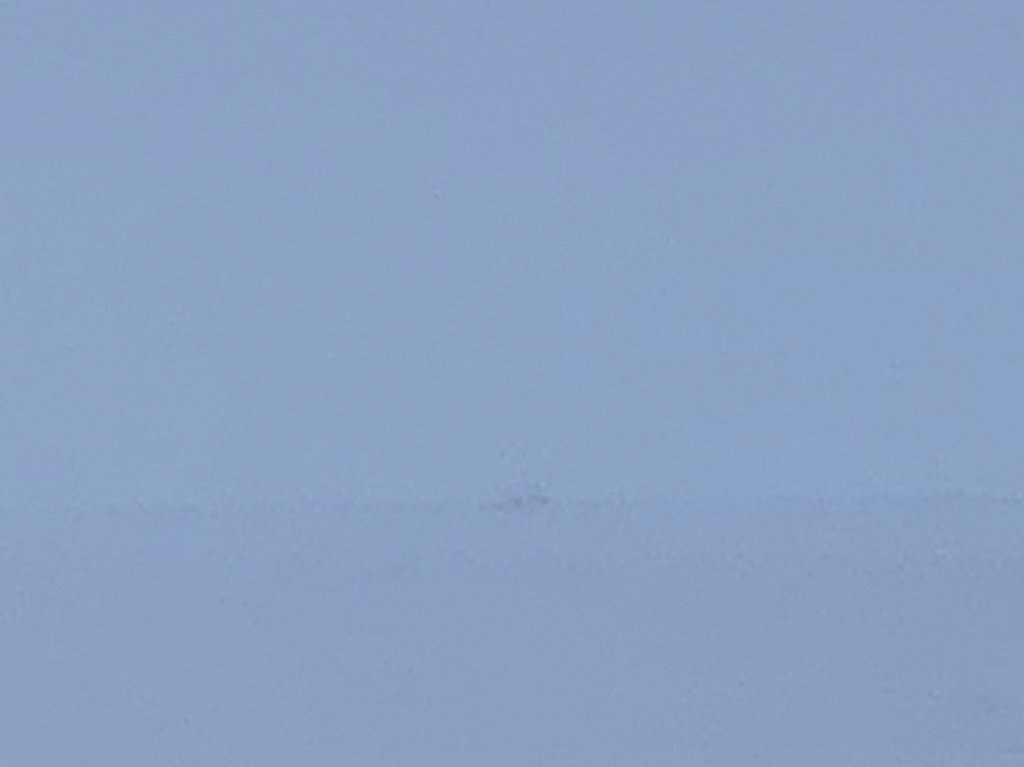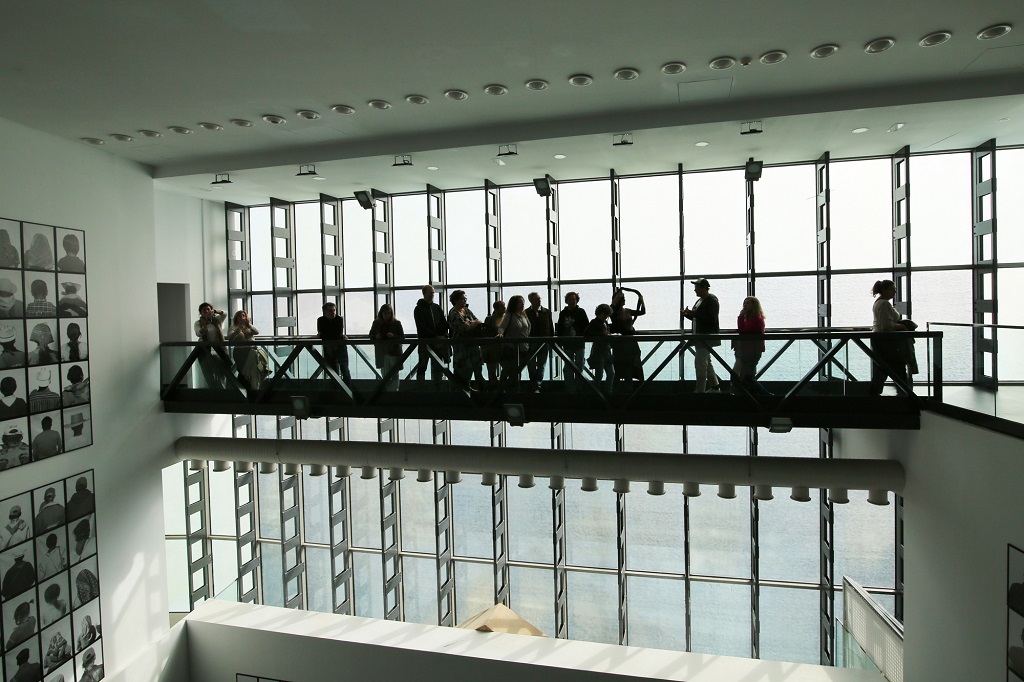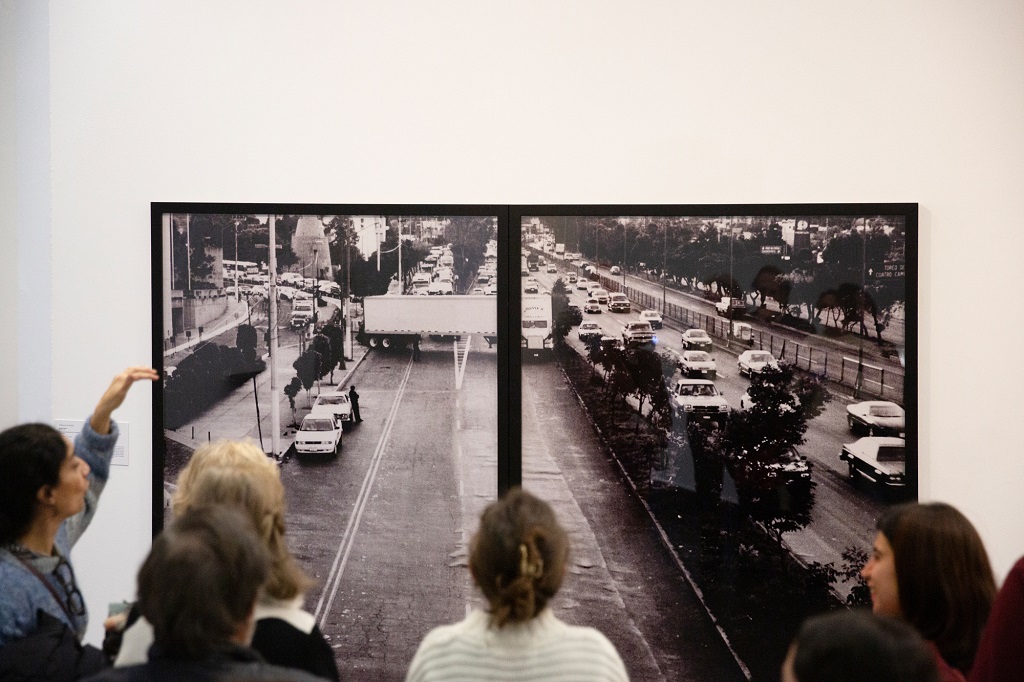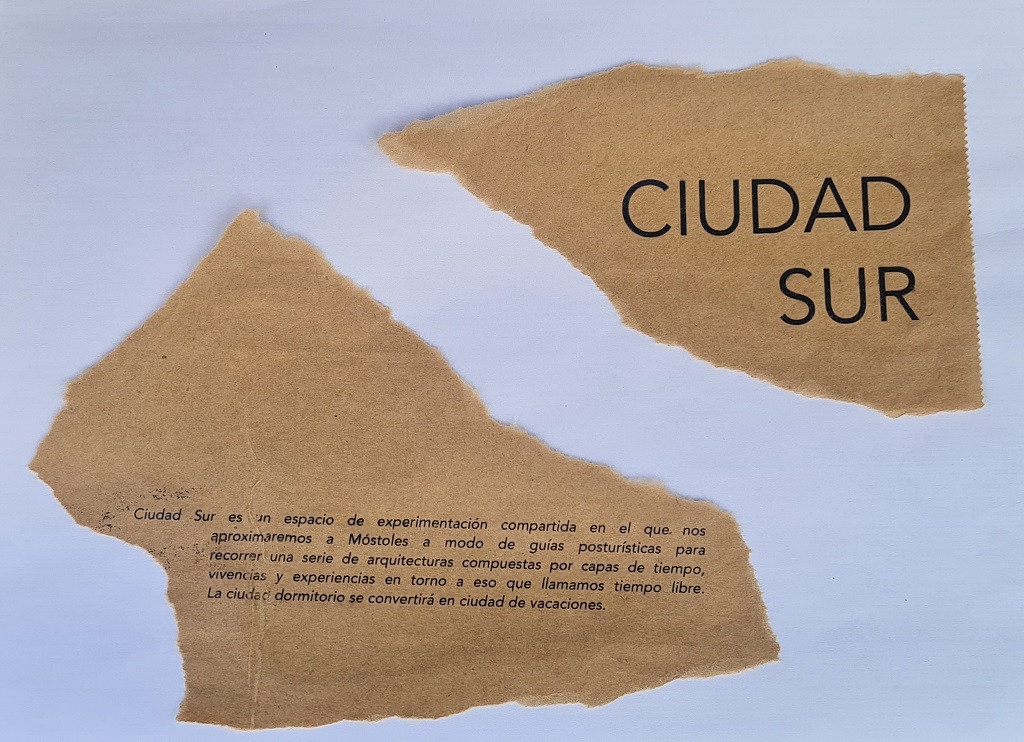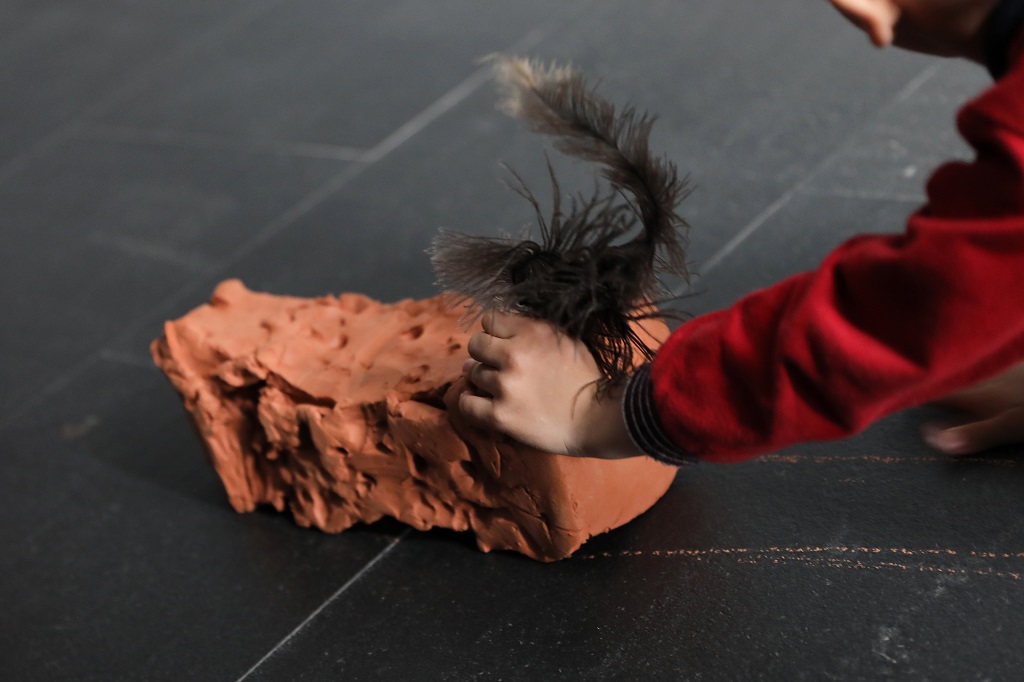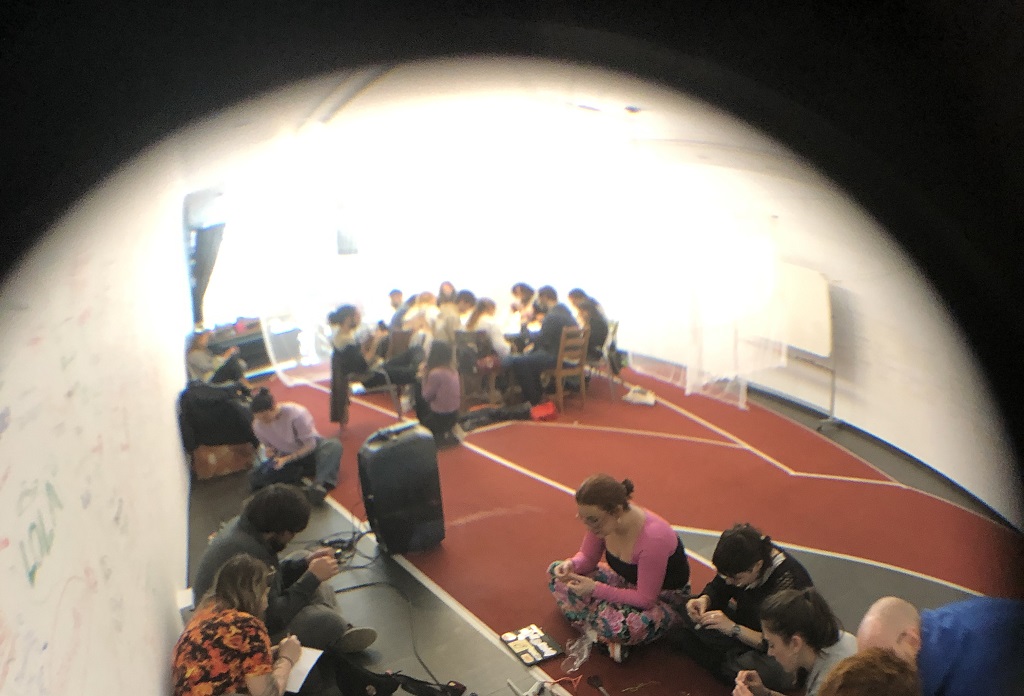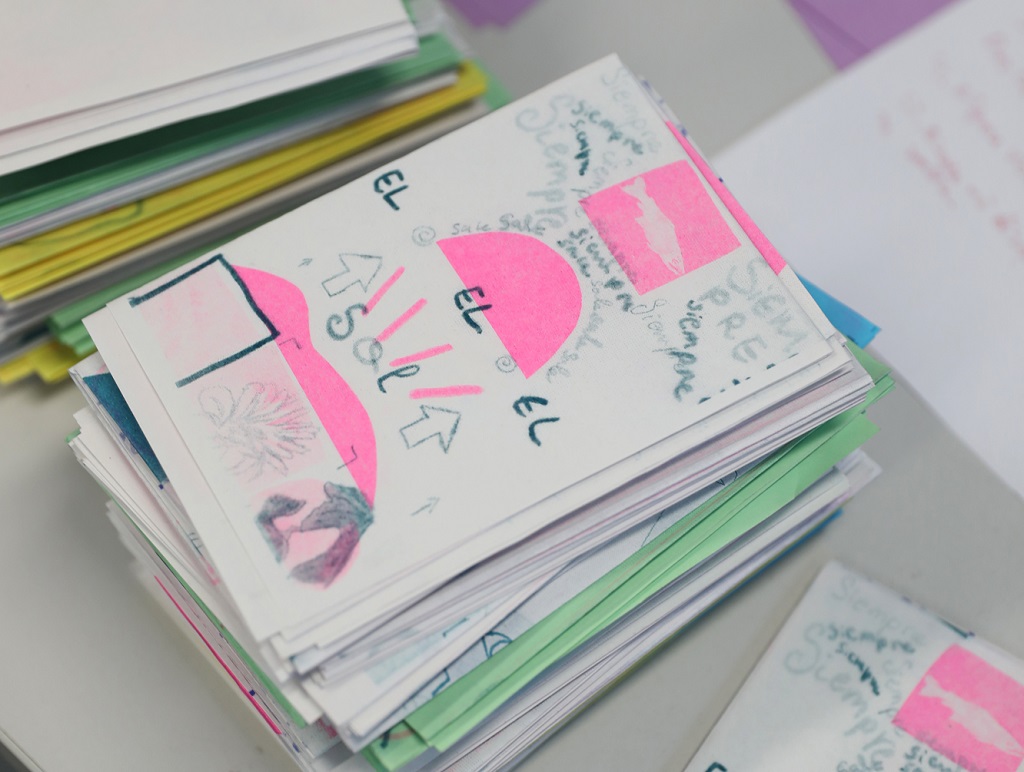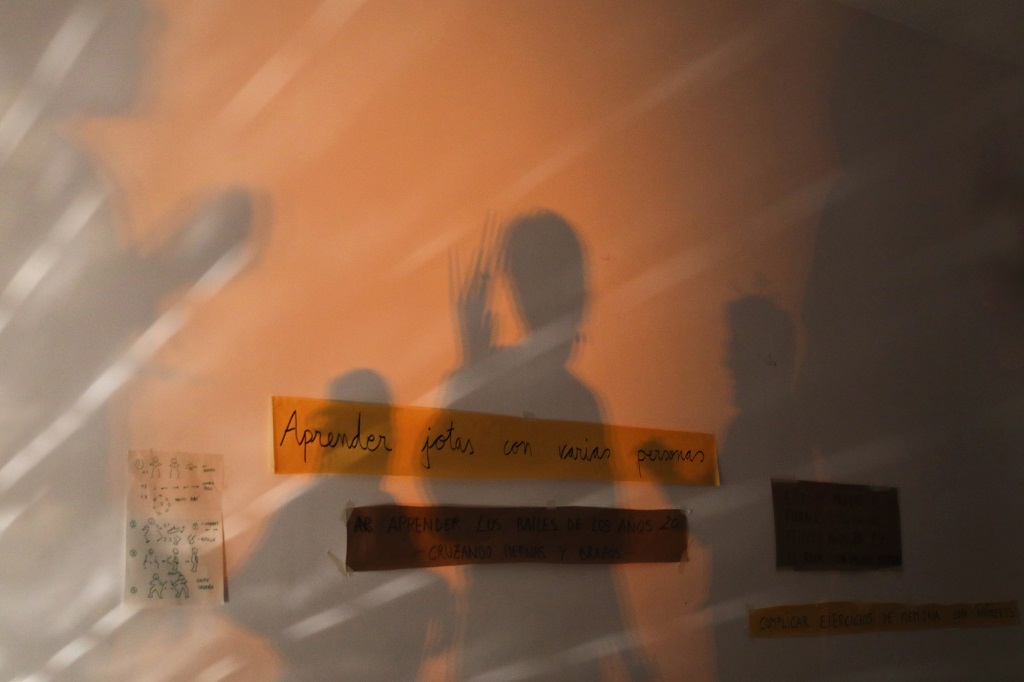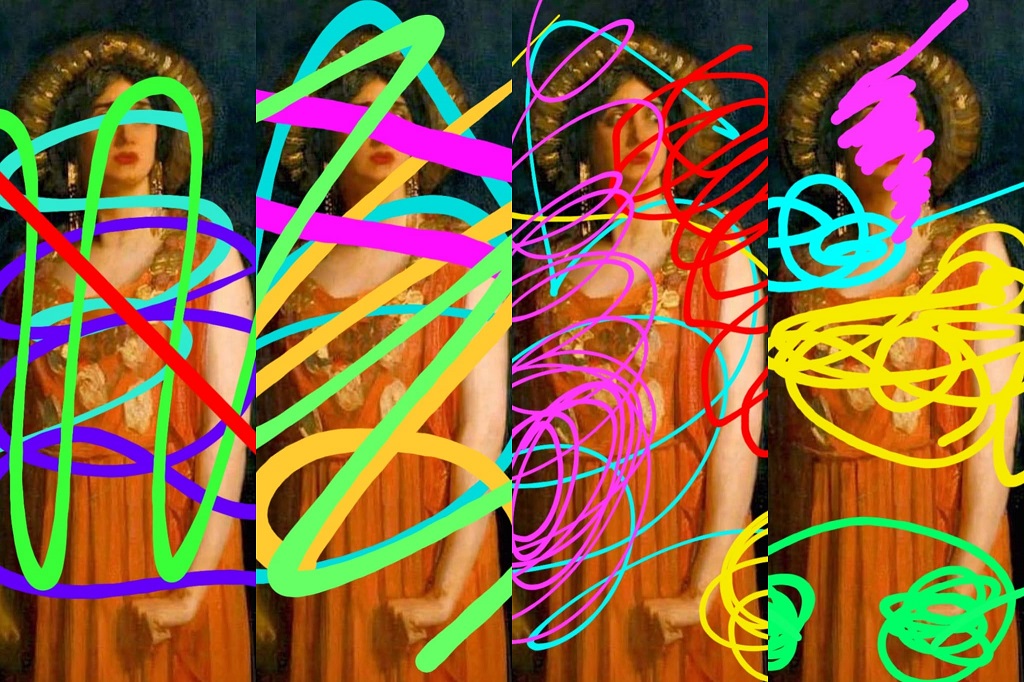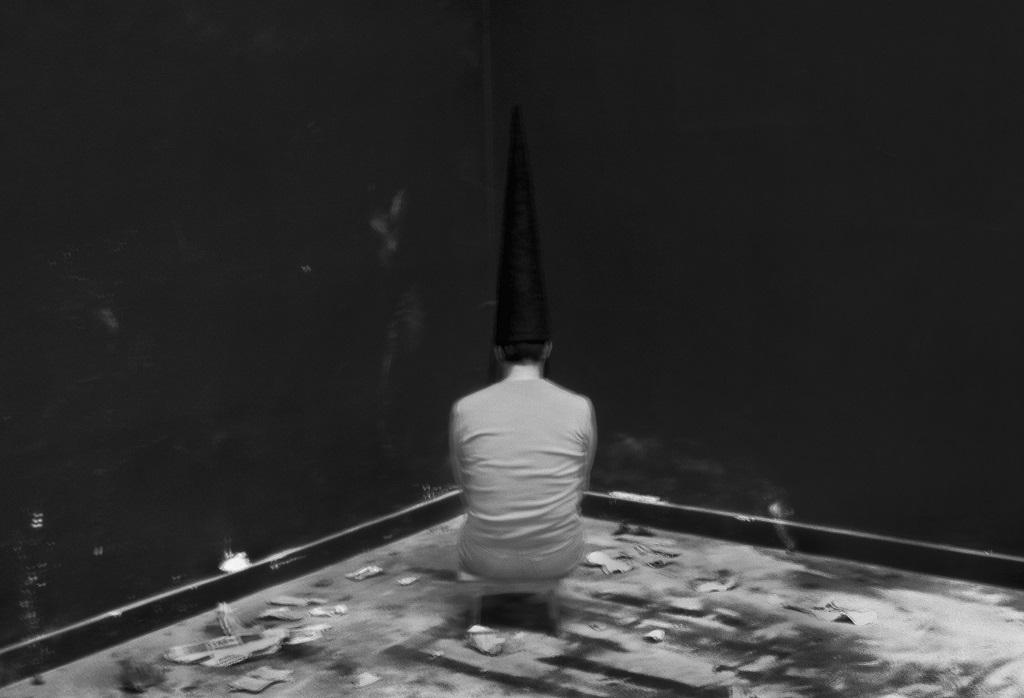It was already super-late and there was still plenty of light. Right, right. There was plenty of light. We also talked about this because, of course, it was so far west and it was very rare, as if people who were already deep into the night were sending us photos of their darkness. But we remained in broad daylight. Right. But there was no sun. It was daytime. Right. Plus, the light was really fragmented. Right, right. Like haze in the background because there was no mist nearby. It was like a kind of warm mist. Of course. I mean, the time came when you couldn’t see the horizon. The horizon was erased. Right, right, like when you looked it seemed like the horizon line had disappeared. Like it had been erased with Photoshop. Of course. This idea that the sky merges with the sea. Right. But like just a part of it. Right. Of the horizon line. Not all of it. That’s right. And like a speck that was the sailboat, and we were going there, that was really strange, right? You could see a bit of light in part of the sea, but then there was nothing. Of course. It was a place of mirages. So then we looked and we all said that it’s not going to cross. Yes, yes, it’s going to cross. No, it’s impossible, it's going to wend, it's going to wend, because that was the edge, and beyond the sea falls away. Maybe that’s why the line couldn’t be seen, because we were already on the other side.
EDUCATIONAL PROGRAMME 2024-2025
Preschool and primary school
-
DE AQUELLOS BARROS. Workshop for preschool and primary school groups.
-
SOFT HOUSE. Project in conjunction with the Móstoles children’s residence.
-
A PIECE OF LINT, A SPECK, A SEQUIN ON THE GROUND THAT ALMOST NOBODY SEES. 0-6 research group.
-
Fieldwork. Project in conjunction with the CEIP Federico García Lorca of Móstoles.
-
SUMMER CABIN. Age 6 and up. One week in July.
Secondary school
-
Donkey ears. Visit-workshop for secondary school and baccalaureate groups. Until January.
-
MAKING A HOUSE. Collaboration project between students from the U.F.I.L. Pablo Neruda, the children at the Móstoles children’s residence and the CA2M Museum. During the school year.
-
Projector of opaque bodies. Collaboration with the IES Europa
Teacher training
-
Darkroom. Performance and education workshop with Jorge Satorre.
-
Darkroom. Collaboration project between Fine Arts and Art history at the Complutense University and the CA2M. All school year
-
STEPS, CHAINS, MURMURS. Audiovisual and educational workshop. In spring.
Youths
- NAILS AND THUMBTACKS. All school year
- WHERE THINGS CONTINUE. Research group for former under-21 participants. All school year
- Under-21. Starting January
Families
-
Morning session
Everyone
- AN AMATEUR CHOIR. Voice creation workshop. Starting January.
- ODD DANCE. All school year.
- Last night I dreamed that I found myself (again). Last night I dreamed. Reading group. All school year.
- Ciudad Sur. Green spectrums: From thyme green to radioactive green. All school year.
- Plant Lab Móstoles. Garden on the terrace. All school year.
- Zafra or how to harvest rebellion. Weekend tours of the exhibitions.
- Group tours. Group tours of the exhibitions. All school year.
- Beyond the sea falls away. Universidad Popular. In spring.
Here you’ll find all the educational programming and activities of the CA2M Museum for everyone: families, young people, teacher training and groups of preschool, primary, secondary and baccalaureate students.
